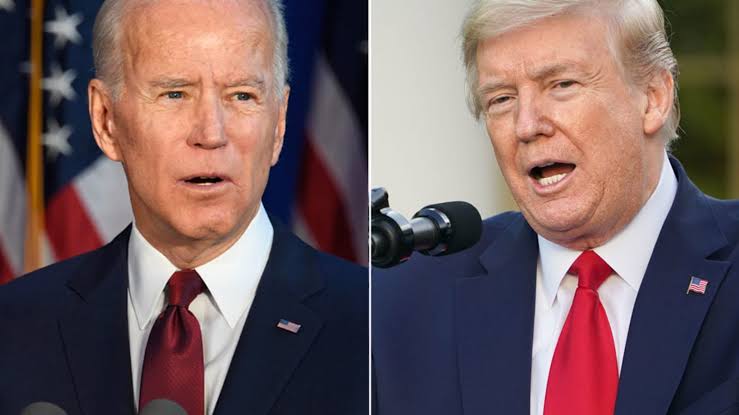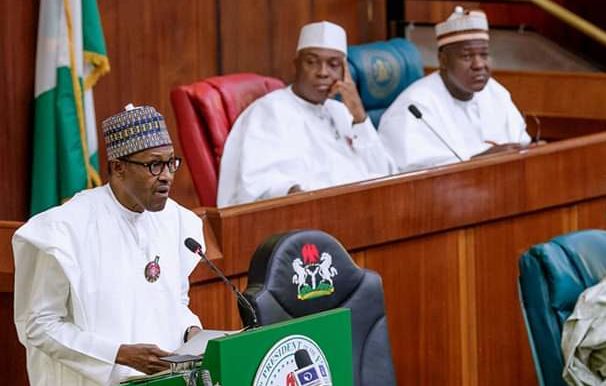Early results from the US presidential election, pitting Donald Trump against Joe Biden, show a tight race in the potentially pivotal race of Florida.
With more than 80% of votes counted in Florida, Mr. Trump, the Republican incumbent, was neck-and-neck with Mr. Biden, the Democratic challenger.
It is too early to project who won in several other key states – Georgia, Pennsylvania, Ohio and North Carolina.
The vote caps a long and bitter campaign amid the coronavirus pandemic.
More than 100 million people had already cast their ballots in early voting.
The US appears on course for its highest turnout in a century. The first projections are expected shortly from states which are solidly Democratic or Republican.
Control of Congress is also at stake. As well as the White House, Republicans are vying to hang on to a Senate majority.
The House of Representatives is expected to stay in Democratic hands.
What are the results so far?
After polling stations closed across the US East Coast, Pennsylvania, Georgia, North Carolina and Ohio looked as though they could go either way in the White House race.
Both Florida and Pennsylvania are considered must-wins for Mr. Trump if he is to be re-elected to a second term in office.
No surprises have emerged yet in the other states.
READ ALSO: Kwara Govt., Dangote Foundation Give N150m Grant To 15,000 Rural Women
The BBC projects Mr. Trump has won Indiana, Kentucky, Tennessee, Oklahoma and West Virginia, all as expected.
The BBC projects Mr. Biden will win his home state of Delaware, along with Vermont, Maryland, Massachusetts, New Jersey and Washington DC.
CBS News, the BBC’s US partner, says South Carolina is leaning Mr. Trump’s way, while Virginia is leaning Mr. Biden’s way.
Voting ends on the US West Coast at 23:00 EST.
Mr. Trump, who is watching the returns from the White House, is expected to address the nation later on Tuesday evening.
Projections are based on a mixture of exit poll data and, in most cases, actual votes counted – and are only made where there is a high degree of certainty.
National polls give a firm lead to Mr. Biden, but it is a closer race in the states that could decide the outcome.
In the US election, voters decide state-level contests rather than an overall, single, national one.
Appearing in his home state of Delaware, Mr. Biden said he was “hopeful” and highlighted the “overwhelming turnout particularly of young people, of women”.
A senior Biden adviser told CBS News that the Biden team “feel good”. Florida was in the balance, but Democratic numbers were strong in a swathe of swing states, including Wisconsin, Pennsylvania, North Carolina, Georgia and Arizona.
Speaking in Virginia, Mr. Trump said he expected “a great night”.
How will the election work?
To be elected president, a candidate must win at least 270 votes in what is called the electoral college. Each US state gets a certain number of votes partly based on its population and there are a total of 538 up for grabs.
This system explains why it is possible for a candidate to win the most votes nationally – as Hillary Clinton did in 2016 – but still lose the election.
Control of the Senate is also at stake in these elections, with the Democrats seeking to gain control of both houses of Congress and the White House for the first time since early in Barack Obama’s first term.
There are fears that pockets of post-election violence could break out as the results come in.
A new “non-scalable” fence has been put up around the White House in Washington DC.
In the last hours of the campaign, Twitter and Facebook labelled a post by President Trump as “misleading”, after he claimed that postal ballots in Pennsylvania could lead to rampant fraud. The social media giants also added a link to a website explaining why mail-in votes were safe.
The US Supreme Court ruled Pennsylvania could count postal ballots received three days after the election. Mr Trump and his campaign indicated they would sue to block the move.
Legal fights over ballots have also been unfolding in Minnesota, North Carolina and Texas.
BBC











